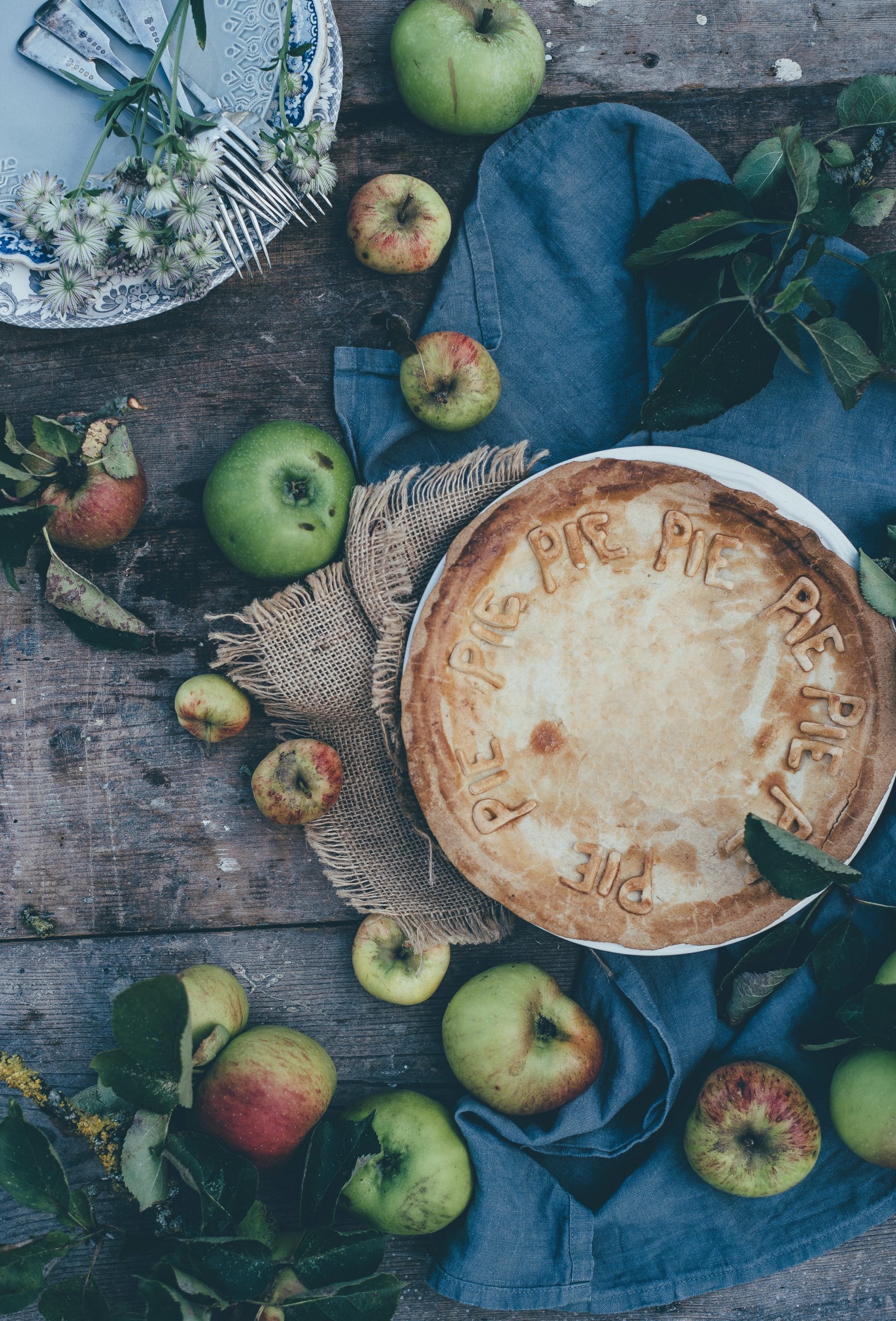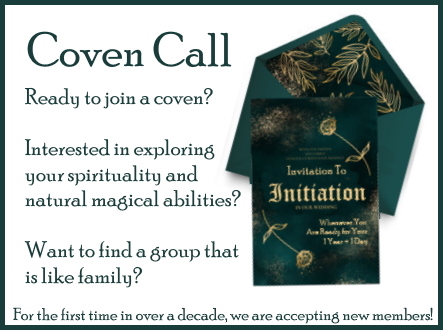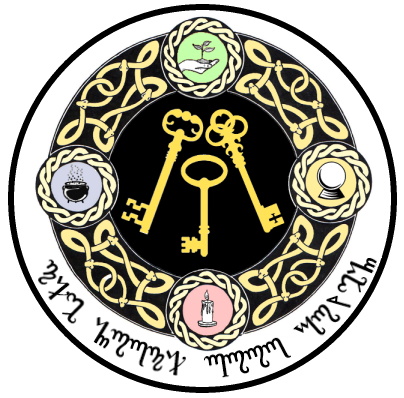
During these times, it is good to reflect on the cosmology that underpins and surrounds and infuses the ritual. As with most healing and cleansing spells, this one invokes the most powerful and the most foundational of the spirits, the gods, the lwa in the tradition. I’m only going to discuss those within the vodun tradition itself, although as my own practice has developed, I have come to understand the presence of these gods and their influence tracing even to the ancient Greeks of thousands of years ago. Perhaps in another conversation, those connections and their powers might be explored.
The lwa involved here are some of the most powerful – Grand Bois, Maitre Carrefour, Baron Cimitière, Papa Legba, Ogoun, Erzulie, and Baron Samedi. The first three, the Triad of Magicians, are utterly foundational, although much less known that the latter four. Grand Bois is the earth, the forest, the bayou, the world that gives us birth and through which we move throughout our entire lives. Maitre Carrefour is the lwa of the crossroads. Not to be confused with Papa Legba, Maitre Carrefour is the actual lwa who preserves all crossroad magic and who watches and makes possible the changes and decisions made at crossroads, actual and metaphysical in life. While it is usually best to do crossroads magic at an actual crossroad, Maitre Carrefour’s powers allow those crossroads to be met and those critical decisions to be made even away from an actual, physical crossroad. Baron Cimitière, also Baron of the Cemetery, is the lwa of the end. Incidentally, for those noticing a relationship between the Maiden, Mother, Crone of both the ancient Greeks and many Wiccan traditions, you have not gone amiss. The Triad of Magicians syncretizes with both, although their focus may have slightly different emphases.
The other four lwa invoked in the spells are more familiar to a popular audience. Papa Legba is perhaps the most famous of the four. In this context, Papa Legba fills his crossroads role as well. Only, the crossroad has a different dynamic – Papa Legba governs the communication link between humanity that the divine. So, at the crossroads, it is Legba who accepts or rejects the request to communicate with the divine. Baron Samedi is often a fearsome individual, one whose gaze is generally avoided. However, much of that is because he deals in death and the underworld. But, his influence is very similar to that of Hades of ancient Greece – the god of the underworld is not himself evil, but necessary. Erzulie, wife to three lwa husbands – Ogoun, Agwe, and Damballa – embodies life itself. Hers is the passion that motivates us forward, the seeks to explore each new opportunity, that is the zest for life. Ogoun, one of the husbands of Erzulie, is most easily recognized as syncretizing Haephaestos, the Greek God of the Forge. He is the god of iron, the warrior god, and most importantly for our purposes here, the god of medicine and healing.
To prepare for the central ritual, it is important to first do the invocation properly. While it is best to perform this at midnight and during a waxing moon, it is possible to do it at any time, and if you have a sacred space, it is possible to have it as a continual ritual to project a continuous energy into the service of healing and health.
The Invocation
Needs: Salt, eight small candles, one large green candle, a large candle for later, a bowl of water, seven iron nails.
Place four small candles – one in each corner of the sacred space. Place a pinch of salt beside each one.
In the interior of the sacred space, place one candle (preferably green) and three other candles in a triangular pattern around the central candle. Place the last small candle one the ground in front of the central candle. Place the bowl of water and the seven iron nails beside the central candle. If you have plans to extend the spell into a constant energy, place another large candle in the center for the end of the ritual.
Light each of the candles in the triangle and say reverently the name of each – Grand Bois, Maitre Carrefour, Baron Cimitière. Then, say loudly and forcefully the names. Then, again a third time, quietly but with conviction.
Then say, “I invoke you with the power of your name. In your names, I command all evil spirits, all negative energy – depart this place, and do not trouble yourself to return; depart this place, and do not trouble yourself to return; depart this place, and do not trouble yourself to return.”
Having invoked and cleansed, you are ready to move to the second stage of the ritual.
Go to each of the four corners.
Light the first candle and say, “Papa Legba, we stand at a crossroads. Come and open the crossroads for us.” Sprinkle salt into the flame.
Light the second candle and say, “Erzulie, we have need of your spark of life. Come and open your passion for us.” Sprinkle salt into the flame.
Light the third candle and say, “Baron Samedi, we have need of your spirit. Come and open your compassion for us.” Sprinkle salt into the flame.
Light the fourth candle and say, “Ogoun, we have need of your healing strength. Come and open your power for us.” Sprinkle salt into the flame.
Situating around the center, use the candle that is lying on the ground. Light it from the three candles in the triangle, and then, while lighting the central candle, say, “Ogoun, god of iron and medicine, hear us.”
Having lit the Ogoun candle, focus your meditation on the flame. While taking slow and deep breaths, gazing into the flame, think of every person (by name, if possible) in need of healing or strength. Holding them in your mind, pour the rest of the salt into the bowl of water. Stir the salt water with each nail as you place it into the bowl. Let the nails soak while again thinking of those in need of healing. Say, “Ogoun, you are a warrior and protector, protect those who strive to heal. Ogoun, you are a physician and provider, place your healing spirit in those who need healing of body, mind, and spirit.”
Take the nails from the water. As they are dry, touch each one to the melted wax of the central candle and set them aside. If you want to keep an ongoing energy flow, light the other large candle and place it in your sacred space or altar.
Say, “Thank you Ogoun, for your healing and protective spirit.” Put out the central candle. Move to each of the outside candles. As you put out the candle, say thank you to the lwa who have given their spirits to the ritual. Move to the center and thank the Triad as you extinguish the candles.
Finally, take the wax-dipped nails and bury them in the earth, outside. Place them, with points facing out and the heads of the nails touching in the center.
This meditation and ritual spell opens up our own energy, merges it with the power of the ancient gods, and sends it into the universe to enhance the healing power in the world. If you focus on the character of each of the lwa as you perform the ritual, it will focus your own mind more precisely and your own power more intensely.


















